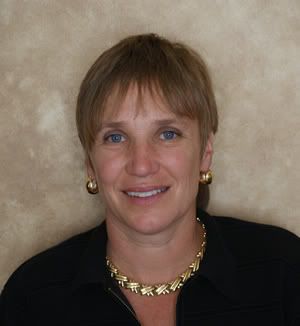|
How the Catholic Bishops Outsmarted Washington Voters
These measures have broad support from Washington citizens of all stripes including most religious people. That includes most Catholics, who, in the words of one Seattle parishioner, think that the bishops "need to get over it."
In other words, west of Moscow, Idaho, and north of Portland, any bishops who want to control what they think of as their sacramental turf --birth, coming of age, sex, marriage, trippy transcendent experiences, and death--haven't got a chance in hell at the ballot box. Washington even has extended statutes of limitations on child sex abuse--something Archbishop Timothy Dolan successfully fended off in New York and Pennsylvania. The Archdiocese of Spokane declared bankruptcy.
But the Vatican hasn't survived for fifteen hundred years by being stupid. And as my devout family members like to say, "Where God closes a door, he opens a window." The window the Bishops found open in Washington takes the form of independent hospitals with financial problems.
Thanks to changes in health care delivery, more and more independent hospitals are being forced to merge with large health care corporations. The pressures include expensive equipment, complex electronic record keeping technologies, and an Obamacare-driven push for greater administrative efficiency. Rather like mom-and-pop hardware stores that survived by becoming Ace franchisees with standardized, streamlined supply and distribution systems, independent health facilities are surviving through acquisitions and mergers with other hospitals and health care corporations.
Of the largest health care corporations in the country, four of six are administered by the Catholic Church including the famously conservative Catholic Health Initiatives which operates the Franciscan brand and has $15 billion in assets. By the end of 2013, if all proposed mergers go through, 45 percent of Washington hospital beds will be religiously affiliated. In ten counties, 100 percent of hospital facilities will be accountable to religious corporations, which are rapidly buying up outpatient clinics, laboratories, and physician practices as well.
In the words of the U.S. Conference of Bishops, Catholic hospitals and health care corporations are "health care ministries" and "opportunities:"
New partnerships can be viewed as opportunities for Catholic health-care institutions and services to witness to their religious and ethical commitments and so influence the healing profession," . . . "For example, new partnerships can help to implement the Church's social teaching."
Here is the diabolical stroke of genius. In any merger between a secular and Catholic care system, fiscal health comes with a poison pill. One condition of the merger is that the whole system becomes subject to a set of theological agreements call the "Ethical and Religious Directives for Catholic Health Care Services" or ERDs. Rather than care being dictated by medical science and patient preference, a set of religious doctrines place restrictions on what treatment options can be offered to (or even discussed with) patients.
Under these agreements, the patient-doctor relationship becomes a patient-doctor-church relationship: "The Church's moral teaching on healthcare nurtures a truly interpersonal professional-patient relationship. This professional-patient relationship is never separated, then, from the Catholic identity of the health care institution." Furthermore providers who work in these systems are required to sign binding contractual agreements to adhere to the religious directives, whether or not they are Catholic: "Catholic health care services must adopt these Directives as policy, require adherence to them within the institution as a condition for medical privileges and employment, and provide appropriate instruction regarding the Directives . . . ."
The ERDs in full are readily available to the public, but here are some key samples and implications:
To many non-Catholics, the most shocking statement in the ERDs is the suggested alternative to death with dignity: "Patients experiencing suffering that cannot be alleviated should be helped to appreciate the Christian understanding of redemptive suffering." Redemptive suffering is a theological notion that derives from the crucifixion story--the idea that the blood sacrifice of a perfect being could redeem harm done. (Theories about how this works have varied over the course of Christian history.) By extension, suffering itself has redemptive value, which is why Mother Teresa's order, for example, practiced self-flagellation and glorified suffering of the poor, ill and dying.
Given the clash between Washington State's independence streak and the top-down approach of the Catholic bishops, Washington citizens are pushing back. After Catholic Peace Health got an exclusive contract near her home in the San Juan Islands, advocate Monica Harrington created a website, Catholicwatch.org to complement the efforts of the national Merger Watch. Merger Watch has been fighting the religious takeover of secular systems across the country for over a decade, and sometimes winning, but describes a recent surge that overwhelms their resources. The ACLU of Washington is ramping up and aggregating funds to fight for a state-wide solution, the first in the country, and is soliciting stories (confidentiality protected) from patients and providers anywhere in the U.S. who have experienced religious interference in medical decisions.
Even so, on May 20, the Seattle Times announced an affiliation agreement between the University of Washington system and Peace Health. Within Catholic-controlled hospitals, less than five percent of revenues come from the Catholic Church. Most are taxpayer funds in the form of Medicaid, Medicare and capital grants for public services--or insurance reimbursement. So, the thought of the bishops influencing a public owned and funded institution adds insult to injury. In response, Columnist Danny Westneat, of the Times, framed a pointed question. "Most of us aren't Catholic, so I'm guessing we'd never go along with letting the creeds of that one faith run something as universal as education [even if `the Catholics have a good record of running quality schools']. So why are we allowing it with health care?"
Why indeed.
How the Catholic Bishops Outsmarted Washington Voters | 2 comments (2 topical, 0 hidden)
How the Catholic Bishops Outsmarted Washington Voters | 2 comments (2 topical, 0 hidden)
|
||||||||||||
| ||||||||||||




 print page
print page